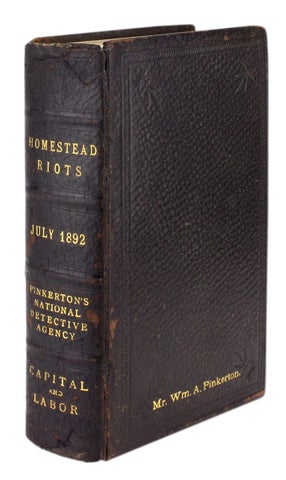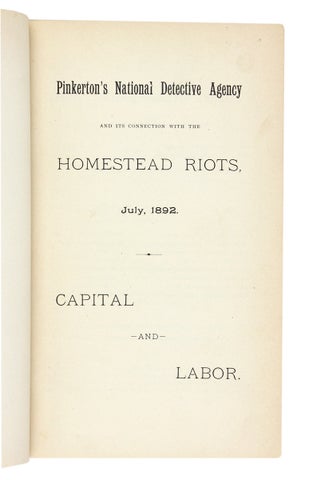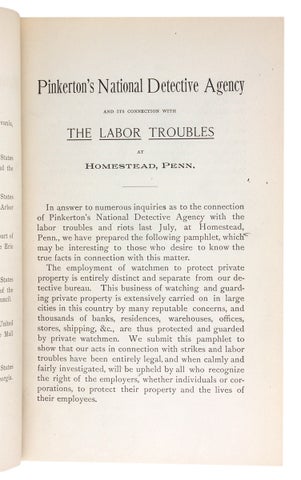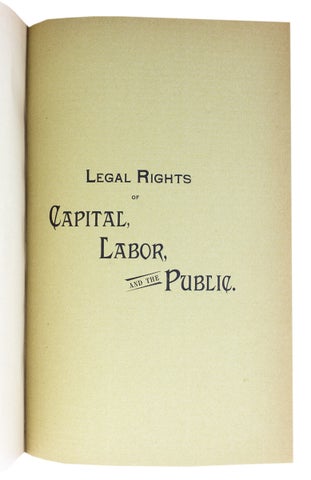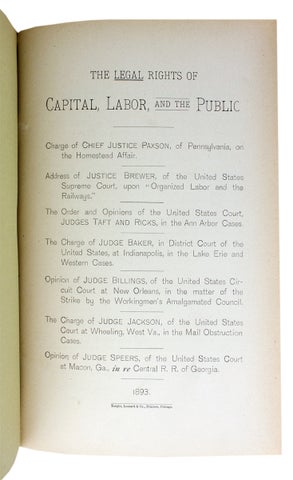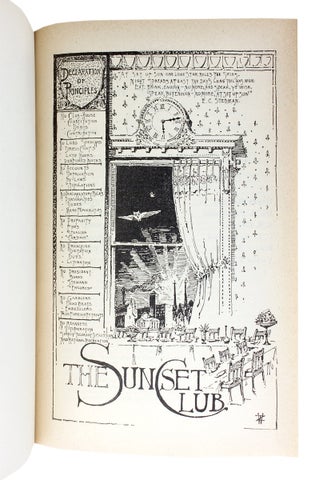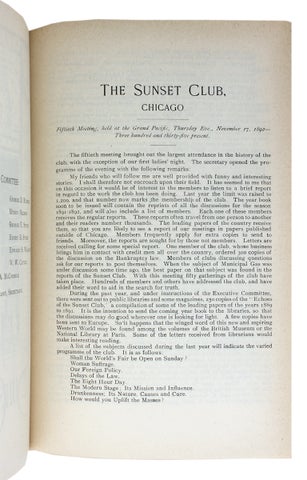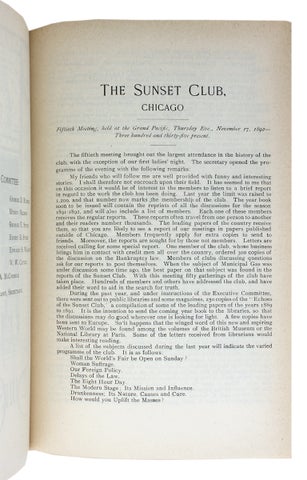Pinkerton’s National Detective Agency and its Connection with the Homestead Riots, July, 1892. Capital and Labor.
—
Original reports of the congressional investigation of the Homestead Riots; this copy specially bound by the Pinkerton Detective Agency, and this also being William Pinkerton’s personal copy, his name stamped in gilt on the front cover. William A. Pinkerton was the son of Allan Pinkerton, founder.
Within are two comprehensive Senate reports on the Homestead strike, legal opinions favoring Pinkerton’s position, and an exposition upon “Legal Rights of Capital, Labor, and the Public,” containing the opinions of seven judges.
The Homestead Strike or Massacre was a defining event of 1892 and highlighted the growing rift between capital and labor. On July 1, the Amalgamated Association of Iron, Steel and Tin Workers union went on strike against Carnegie Steel Co. at Homestead, Pennsylvania after management refused to recognize the union.
On July 6, the steel works manager, Henry Clay Frick, “...hired some 300 Pinkerton guards to keep the mills open for strikebreakers and had them brought to Homestead on river barges by night, the strikers prevented the guards from landing and a battle broke out causing a number of deaths. Although the Pinkertons surrendered, the state militia was summoned and under its protection the strike was broken even though it dragged on for four more months. Thus organized labor’s first struggle with large-scale capital ended in failure…” (DAH p525)
The Pinkertons involvement called into legal question the role of a private-sector police force having enforcement powers similar to that of a traditional government police entity.
The contents:
1. Extracts from Proofs, etc., before the Judiciary Committees of the U.S. Senate and House of Representatives…
2. Report of Investigations, by U.S. Senate Committee, 52nd Congress, 2nd Session, Report No. 1280, February 10, 1893, Investigation of Labor Troubles…
3. Report, House of Representatives, 52nd Congress, 2nd Session, Report No. 2447, February 7, 1893, Employment of Pinkerton Detectives…
4. United States Senate Investigation of the Labor Troubles at Homestead, Statement Submitted by William A. and Robert A. Pinkerton…
5. Holbrook, Z.S. “The Lessons of the Homestead Troubles” in the report of the Fiftieth Meeting of The Sunset Club…
6. Paxson, (Edward), Chief Justice of Penn, et al., Legal Rights of Capital, Labor, and the Public…
A superb association copy of this important investigation.
Description: Pinkerton’s National Detective Agency and its Connection with the Homestead Riots, July, 1892. Capital and Labor.
[Six Congressional reports bound in one, 1892-3]. Custom bound in full black morocco, gilt spine, all edges gilt, “Mr. Wm. A. Pinkerton” in gilt across the front cover. Joints slightly starting, head and tail of spine with loss and previous in-painting; light rubbing to extremities; front free endpaper with expert tissue mends; very good.
[3729219]IB100
Price: $2,750.00

![[3729219] Pinkerton’s National Detective Agency and its Connection with the Homestead Riots, July, 1892. Capital and Labor. William A. Pinkerton.](https://rareamericana.cdn.bibliopolis.com/pictures/3729219.jpg?width=768&height=1000&fit=bounds&auto=webp&v=1591113294)
